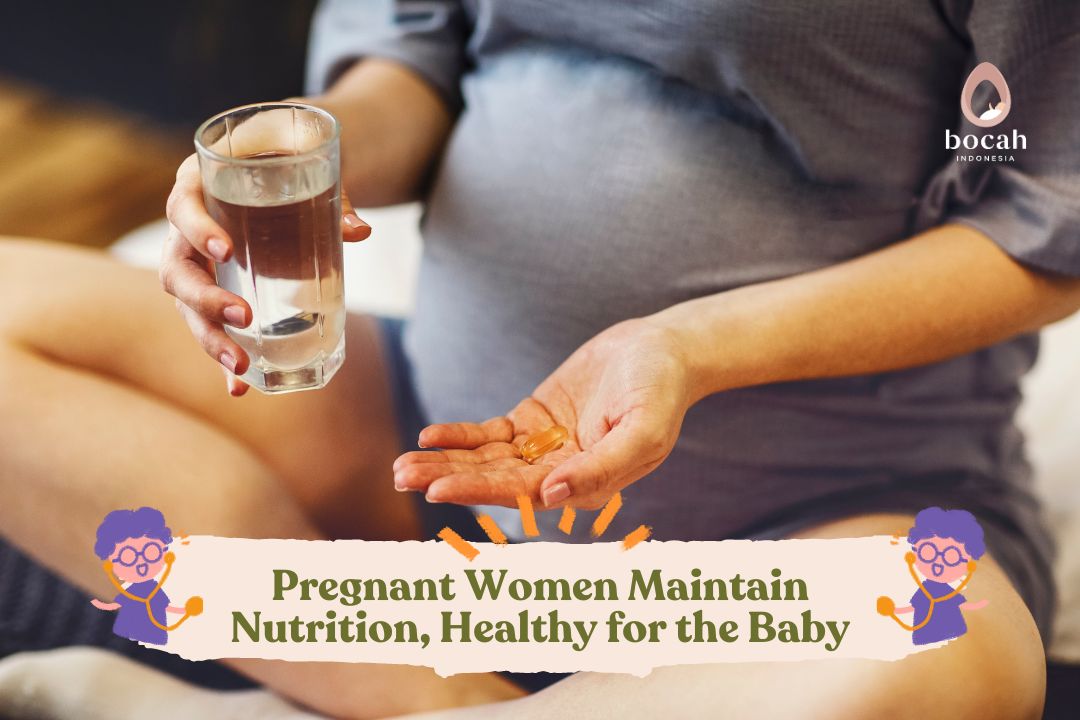Irregular Heartbeat Makes Pregnant Women Insecure

Dear mother, the heartbeat or heart rate usually increases during pregnancy as the body works to pump blood to the organs and placenta. Find out more information here!
Women tend to have a higher average heart rate than men. Two conditions like pregnancy and menopause both result in changes in heart function.
Actually, there is no standard definition for a heart rate that is considered too high or too low during pregnancy.
Instead, doctors look at a person’s baseline heart rate and how their heart rate changes over time. To avoid concerns about irregular heartbeats during pregnancy, it is important to read the following information.
Normal Heart Rate for Pregnant Women
According to the BMC Medicine journal, a meta-analysis conducted in 2019 examined the increase in heart rate in 36,239 pregnant mothers. Researchers found that the average increase in heart rate is about 10%, or 7-8 beats per minute.
Tanya Ferly tentang Promil?
This study also found that the average heart rate gradually increases during pregnancy. At 10 weeks of pregnancy, the average heart rate is 79.3 beats per minute. At 40 weeks, the average heart rate is 86.9 beats per minute.
The heart rate of pregnant women may be higher or lower than these figures if their heart rate before pregnancy was higher or lower.
Mild heart palpitations and small changes in heart rate during pregnancy are common. A study in 2007 emphasized that although there are changes in heart rate during pregnancy, these changes rarely indicate heart problems, and most of these changes are not harmful.
Causes of Abnormal Heartbeat During Pregnancy
There are several factors that can cause an abnormal heart rate during pregnancy:
1. Abnormal Resting Heart Rate
One of the causes that can make a mother’s heart rate abnormal during pregnancy is a low or high resting heart rate that they had before pregnancy, which may experience changes in heart rate outside the normal range during pregnancy.
2. Heart Disease
Sometimes, changes in heart rate can be a sign of problems with the heart’s electrical system, blocked arteries, or other heart health issues. Heart health problems are more common during pregnancy, and heart disease is one of the leading causes of pregnancy-related deaths.
3. Preexisting Arrhythmias
Arrhythmias are irregular heart rhythms or heartbeats. Pregnant women with a history of arrhythmias may find that pregnancy can worsen their condition.
4. Exercise
Irregular heartbeats during pregnancy can also occur if a mother was very physically active before pregnancy. This can lead to a lower resting heart rate, which can continue during pregnancy.
5. Anxiety
Anxiety can make the heart beat faster, and some people may become anxious when they realize that their heart is beating rapidly during pregnancy, which can exacerbate the anxiety.
Maintaining a Normal Heart Rate During Pregnancy
Pregnant women with heart rates outside the normal range should focus on the underlying causes. It is important to consult a doctor to determine the cause and address it properly.
In general, a healthy lifestyle can help maintain good health during pregnancy and support a normal heart rate. Here are some things you can do to support a healthy pregnancy and normal heart rate.
1. Exercise
Moderate exercise is usually safe during pregnancy, but talk to your doctor before trying any exercise during pregnancy. Most pregnant people need at least 150 minutes of aerobic exercise per week. Try walking, swimming, and other low-impact options. Yoga or stretching can help maintain healthy muscles and reduce pregnancy-related discomfort.
2. Eat Healthy Foods
Discuss with your doctor the best way to provide nutrition to your body during pregnancy. Most pregnant people need 2,200-2,900 calories per day. This varies with age, body size, activity level, and other factors. Protein, fruits, vegetables, and nutritious foods can help protect the heart. Regular Consultations with an Obstetrician Consult with a doctor or midwife at least once during the first trimester, then schedule regular visits as recommended by your healthcare provider.
3. Regular prenatal care
includes monitoring heart health and can reduce the risk of untreated heart problems. Manage Stress Well Stress, anxiety, and other mental health issues can make the heart beat faster and make pregnancy more difficult.
Pregnant women experiencing anxiety should talk to a doctor, practice slow and deep breathing, and speak with a mental health counselor specializing in prenatal mental health.
It is important to remember that if you experience significant changes in heart rate during pregnancy, you should consult a doctor or healthcare provider. They can conduct further evaluations and provide appropriate advice and treatment.
Share this article with other expectant mothers and fathers, let’s go! If you’re interested in information related to pregnancy and fertility, read other articles on Bocah Indonesia!
Source:
- Adamson, D. L., & Nelson‐Piercy, C. Maternal heart rate patterns under resting conditions in late pregnancy. Diakses 2023. https://www.ncbi.nlm.nih.gov/pmc/articles/PMC2095764/
- Ellis, E. Healthy weight during pregnancy. Diakses 2023. https://www.eatright.org/health/pregnancy/prenatal-wellness/healthy-weight-during-pregnancy
- Enriquez, A. D., et al. Contemporary management of arrhythmias during pregnancy. Diakses 2023. https://www.ahajournals.org/doi/full/10.1161/circep.114.001517
- Exercise during pregnancy. Diakses 2023. https://www.acog.org/clinical/clinical-guidance/committee-opinion/articles/2020/04/physical-activity-and-exercise-during-pregnancy-and-the-postpartum-period
- Centers for Disease Control and Prevention. High blood pressure during pregnancy. Diakses 2023. https://www.cdc.gov/bloodpressure/pregnancy.htm










